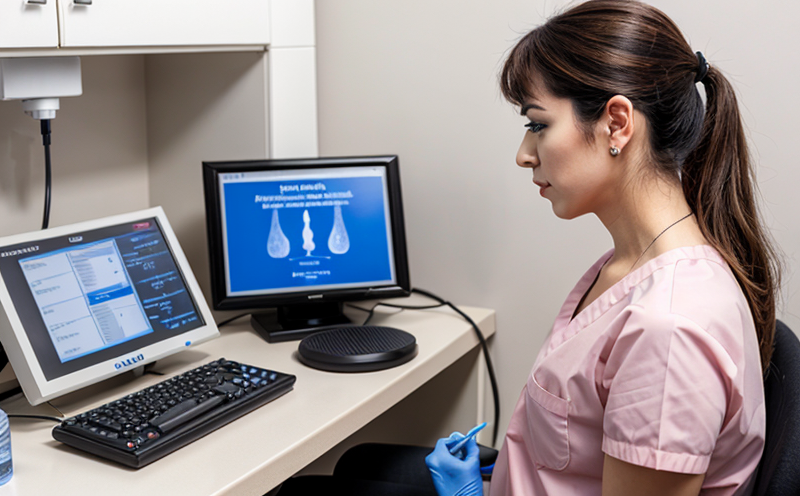Thyroxine (T4) Testing in Companion Animals
The testing of Thyroxine (T4), a critical hormone produced by the thyroid gland, is essential in companion animal medicine for diagnosing and managing endocrine disorders. T4 plays a pivotal role in regulating metabolism, growth, and development in dogs and cats. Abnormal levels of this hormone can lead to various clinical signs such as weight changes, lethargy, and skin issues.
In dogs, hypothyroidism is the most common condition requiring T4 testing. Dogs with insufficient thyroid function have low levels of T4, leading to symptoms like hair loss, increased susceptibility to infections, and a higher risk of developing cardiovascular diseases. Conversely, in cats, hyperthyroidism is more prevalent and can be diagnosed by elevated T4 levels. This condition often results from the overproduction of T3 (another thyroid hormone) due to an adenoma or carcinoma of the thyroid gland.
Accurate measurement of T4 is crucial for effective diagnosis and treatment planning in both dogs and cats. The standard method involves measuring total serum T4 concentrations using immunoassays, which are highly sensitive and specific tests suitable for routine veterinary practice. However, it’s important to note that free T4 (fT4) levels may provide a more accurate reflection of thyroid function as they measure only the biologically active form of T4.
Proper specimen collection is critical in ensuring reliable test results. Blood samples should be collected into heparinized tubes and kept cool but not frozen until processed. Samples must be analyzed within 2 hours to prevent degradation. Pre-analytical variables such as stress, diet, and medications can significantly affect the results, so careful consideration of these factors is necessary.
For accurate interpretation of T4 results, it’s essential to understand reference ranges specific to each breed and age group. While general reference values are available in literature, they should be interpreted with caution due to variations among different populations. Veterinary endocrinologists often use a combination of clinical signs, other laboratory tests, and imaging studies to make an accurate diagnosis.
Thyroxine testing is not only diagnostic but also therapeutic. Once a diagnosis is confirmed, treatment involves administering synthetic thyroid hormone (Levothyroxine) in dogs with hypothyroidism or managing hyperthyroidism through medication, dietary modifications, or surgery in cats.
Why It Matters
The importance of Thyroxine (T4) testing in companion animals cannot be overstated. Accurate diagnosis and timely intervention can significantly improve the quality of life for affected pets. Early detection of thyroid disorders allows for early treatment, which can prevent complications such as heart disease, joint pain, and neurological issues.
For dogs with hypothyroidism, T4 testing is a cornerstone of care. It helps in monitoring response to therapy and adjusting doses as needed. In cats, hyperthyroidism poses serious health risks if left untreated, including atrial fibrillation and severe weight loss. Regular monitoring through T4 tests ensures that treatment plans are effective and prevent potential complications.
From a broader perspective, the accurate diagnosis of thyroid disorders in pets contributes to better overall pet care practices. It underscores the importance of routine health check-ups and emphasizes the role of laboratory testing in preventive medicine.
Environmental and Sustainability Contributions
- Thyroxine (T4) testing supports sustainable veterinary practices by enabling early detection and management of thyroid disorders, which can reduce the use of antibiotics and other medications that have environmental impacts.
- The accurate diagnosis provided through T4 testing helps in tailoring treatments to individual animals, minimizing unnecessary medication use and waste generation.
By focusing on precision medicine, Thyroxine (T4) testing reduces the carbon footprint associated with overprescribing or under-prescribing medications. This approach also supports responsible pet ownership by ensuring that treatment plans are both effective and environmentally friendly.
Competitive Advantage and Market Impact
- Providing accurate Thyroxine (T4) testing services enhances the reputation of a laboratory as a trusted partner in veterinary care, attracting more clients seeking comprehensive diagnostic solutions.
- The ability to offer state-of-the-art T4 testing contributes to higher client satisfaction and loyalty, positioning the lab as an essential component of modern veterinary practices.
Accurate and reliable T4 testing results enable veterinarians to make informed decisions promptly, thereby improving patient outcomes. This capability differentiates the laboratory from competitors who may not offer such precise diagnostic tools or services.
The demand for advanced diagnostic tests like T4 is growing as more pet owners seek high-quality care. By investing in these technologies and maintaining strict quality control measures, laboratories can stay ahead of market trends and meet increasing client expectations.





